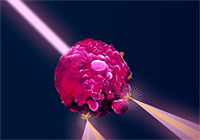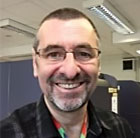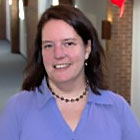On Demand Webinar: An Introduction to Successful Flow Cytometry Panel Design

Flow cytometry is a fluorescence-based technology that allows multiple targets to be analyzed simultaneously. However, the number of targets is limited by the cytometer at your disposal i.e. the lasers and optical filters inside. As the number of fluorochromes available has increased in recent years, knowledge of the pros and cons of each is vital in order to build an effective multicolor flow cytometry panel. Allied to this is knowing the optical layout of the cytometer you are using. In this webinar, I will highlight important considerations, and give tips on how to effectively and efficiently use a flow cytometer for multicolor phenotyping experiments.
During the webinar, viewers will:
During the webinar, viewers will:
- Learn the basic principles behind flow panel design
- Understand the pros and cons of different fluorochromes
- Get tips on how to effectively use a flow cytometer for multicolor experiments
- Have the opportunity to ask questions during the live broadcast
SPEAKER
 |
Derek Davies |
||||
|
|
|||||
 |
Jody Bonnevier, Ph.D. Antibody Development Manager Bio-Techne |
||||
Dr. Jody Bonnevier is a Manager in the Antibody Development Department at R&D Systems in Minneapolis MN. Jody received her PhD in Microbiology, Immunology, and Cancer Biology at the University of Minnesota, and has over 10 years of experience developing novel antibodies and reagents, with a focus on flow cytometry and cell selection product development. |
|||||
© Copyright 2022 Bio-Techne. All Rights Reserved.
